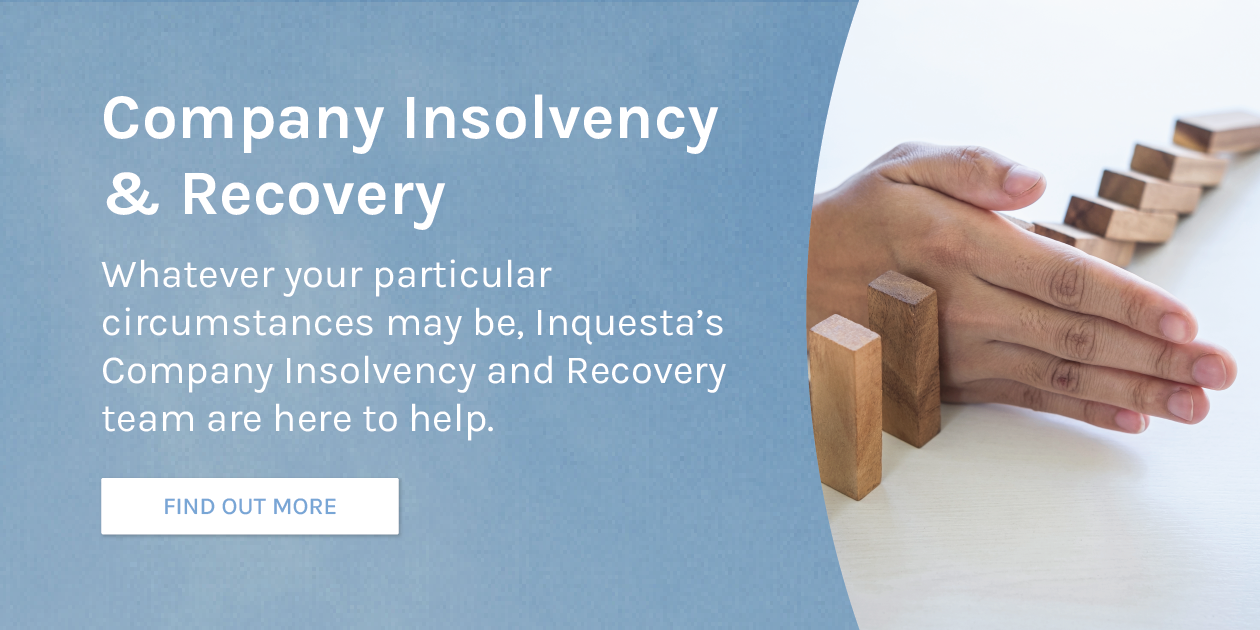The 9-Minute Rule for Insolvency Practitioner
The 9-Minute Rule for Insolvency Practitioner
Blog Article
8 Easy Facts About Insolvency Practitioner Shown
Table of Contents3 Simple Techniques For Insolvency PractitionerHow Insolvency Practitioner can Save You Time, Stress, and Money.Insolvency Practitioner Fundamentals ExplainedThe Definitive Guide to Insolvency PractitionerThe Main Principles Of Insolvency Practitioner
Whether or not you require to utilize an insolvency specialist (IP) to liquidate your company depends on numerous factors. While engaging a bankruptcy specialist for all types of liquidation is not a lawful need, doing so can frequently simplify the process and ensure conformity with lawful demands. Liquidating a business is a vital choice that includes significant consequences.
It is a procedure utilized when a firm does not have any financial institutions, or every one of their financial institutions can be paid off in full with statutory passion. Recognizing the various kinds of insolvency procedures can help you establish the ideal strategy for your business's liquidation or various other formal bankruptcy procedures itself.
This is required in order to abide by legal needs - Insolvency Practitioner. This is due to the fact that IPs have the needed credentials and experience to make certain that the liquidation process is performed according to all suitable laws and guidelines. By involving a qualified bankruptcy professional, you can have assurance knowing that your firm's liquidation procedure will be taken care of skillfully and in compliance with the pertinent legal demands
What Does Insolvency Practitioner Do?
The bankruptcy practitioner is selected as a liquidator and is accountable for handling the business and liquidator's financial obligations impressive responsibilities and possessions. This process includes selling the business's possessions and distributing the earnings to lenders. Upon conclusion of the procedure, the firm is gotten rid of from the register at Companies Home.
Failing to do so can cause personal liability for the business or supervisor for the creditor's financial debts. Voluntary liquidation, which consists of Lenders' Volunteer Liquidation (CVL) and Members' Voluntary Liquidation (MVL), is initiated by the company's supervisors and shareholders when they can no more pay their debts. In a CVL, the bankruptcy practitioner is assigned as the liquidator, responsible for handling firm debts and all firm possessions.

Get This Report on Insolvency Practitioner
By evaluating the knowledge and experience of possible bankruptcy practitioners, you can guarantee that you select a professional that possesses the required qualifications to handle your firm's liquidation procedure properly. While insolvency practitioner-led liquidation is commonly one of the most appropriate training course of activity for business encountering insolvency, there are different techniques to think about, such as striking off and partial liquidation.
It's important to review all available choices before selecting the next finest remedy or strategy for your organization. Striking off companies' registers is an extra simple continue reading this and cost-efficient way to shut check over here inactive or small firms with no financial obligations or assets. To strike off a firm, its name is gotten rid of from the Firms House register by sending kind DS01.
Prior to selecting striking off, it's critical to evaluate the advantages and drawbacks of this method and consider whether it's the best option for your business. Partial liquidation is one more alternative to insolvency practitioner-led liquidation, where a business sells off specific assets and obligations while remaining to run with the staying assets and obligations.
An Insolvency Practitioner will have the ability to recommend you of the very best strategy to take and make certain that every little thing runs smoothly. It is not feasible to liquidate a company without a liquidator. Selecting an authorized bankruptcy practitioner is necessary for the procedure of voluntary liquidation to start.
Insolvency Practitioner for Dummies
It is feasible to shut and liquidate your business without using a liquidator, given your business is solvent and you meet the qualification needs to dissolve or liquidate it. However, if your firm is financially troubled, you may be called for to utilize a liquidator and begin formal bankruptcy treatments. Here are a few other useful articles pertaining to company liquidation in the UK:.
Remaining in a position where you're incapable to pay your company's financial institutions is incredibly demanding. In an attempt to stay clear of enhancing the degree of financial obligation, several business try to bargain straight with their financial institutions and agree to a casual setup. If the debt is rather small and owed to one lender, and the financial institution is being cooperative, entering right into an informal financial obligation setup is probably the most effective solution, instead of browsing the internet for 'a bankruptcy professional near me'.
On the other hand, if there are several creditors and the degree of debt is huge, lenders might not be so willing or cooperative. To avoid liquidation or bankruptcy, it is much better to work with an insolvency practitioner to draw up official propositions and bargain with creditors in your place.
The 10-Second Trick For Insolvency Practitioner
Whilst it is a way to manage debt, there are significant risks entailed with this sort of financial debt setup - Insolvency Practitioner. If a financial institution agrees to enter into a casual plan (IA) whereby the borrower has actually accepted make regular, if reduced, repayments to pay back the financial debt, it is very important to stay with the contract

The financial institution is within their legal rights to back out of the agreement and application the courts for your business to be sold off at any type of time. A formal plan that has been recommended by an insolvency practitioner on your part, and agreed by a creditor, supplies a much safer alternative.
Report this page